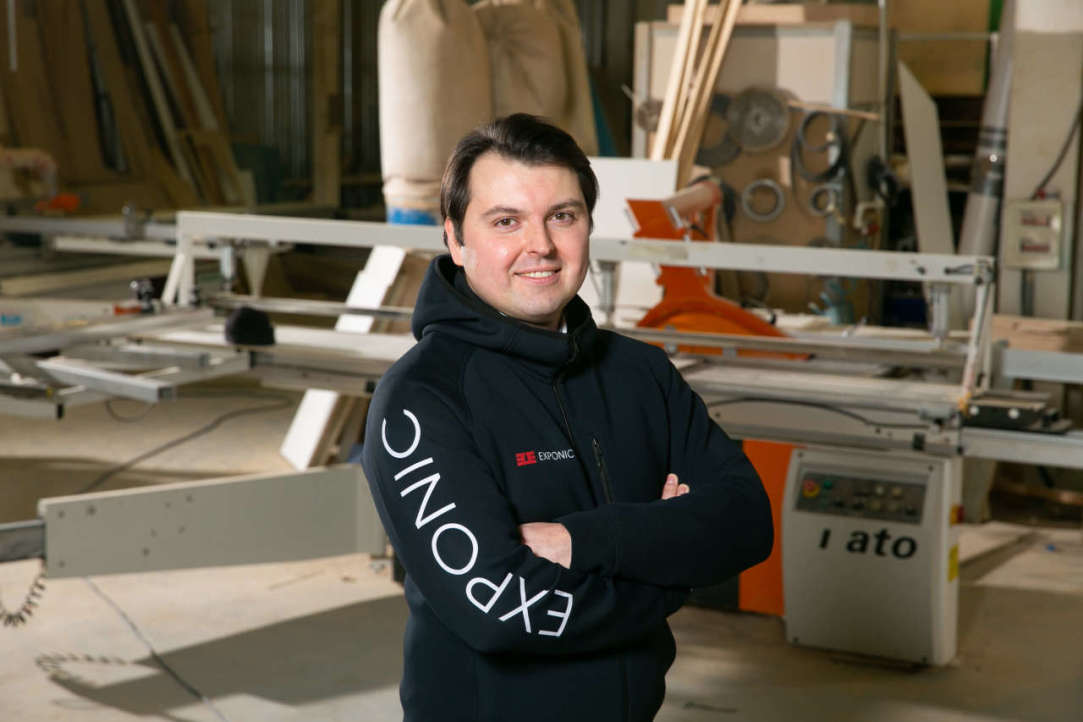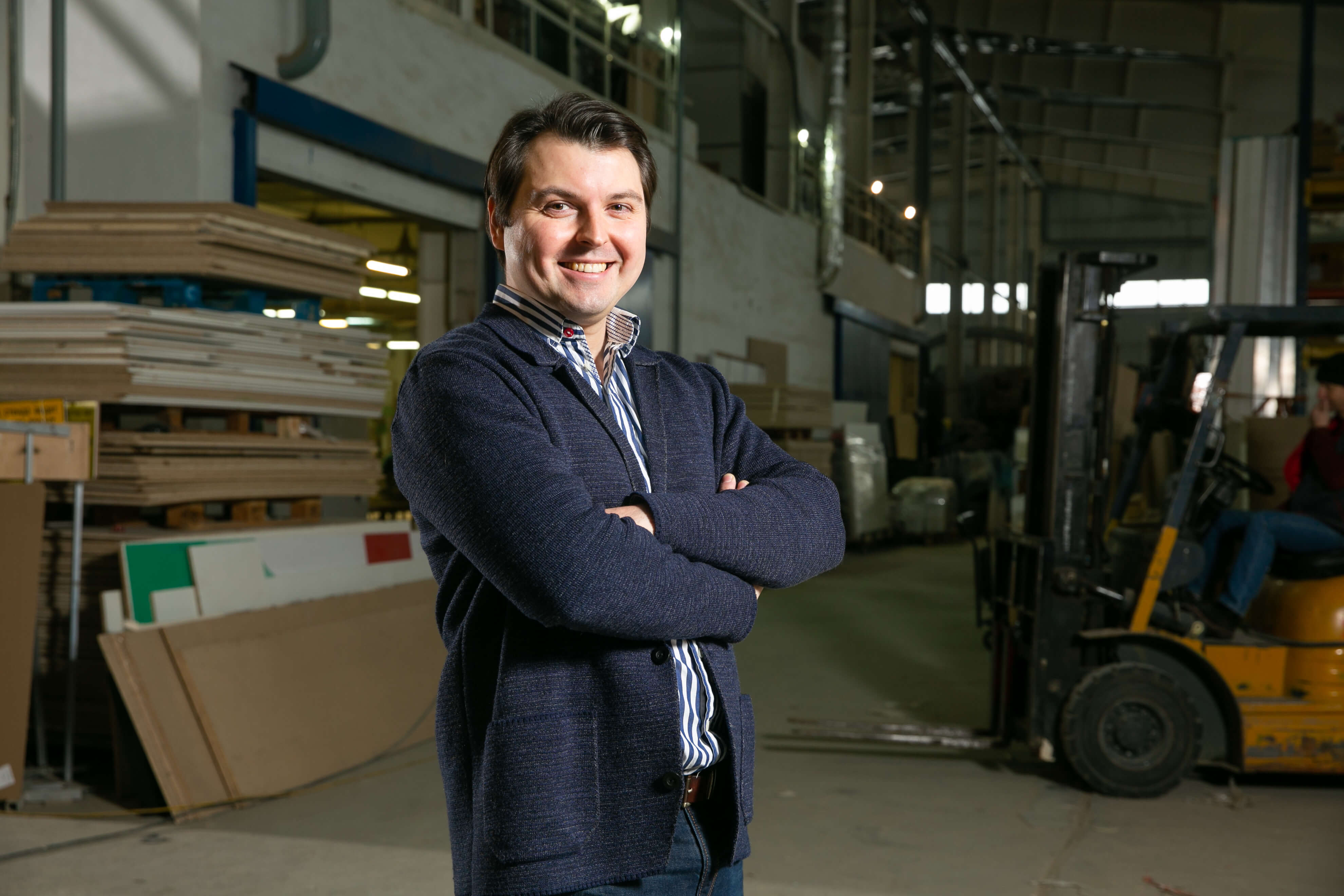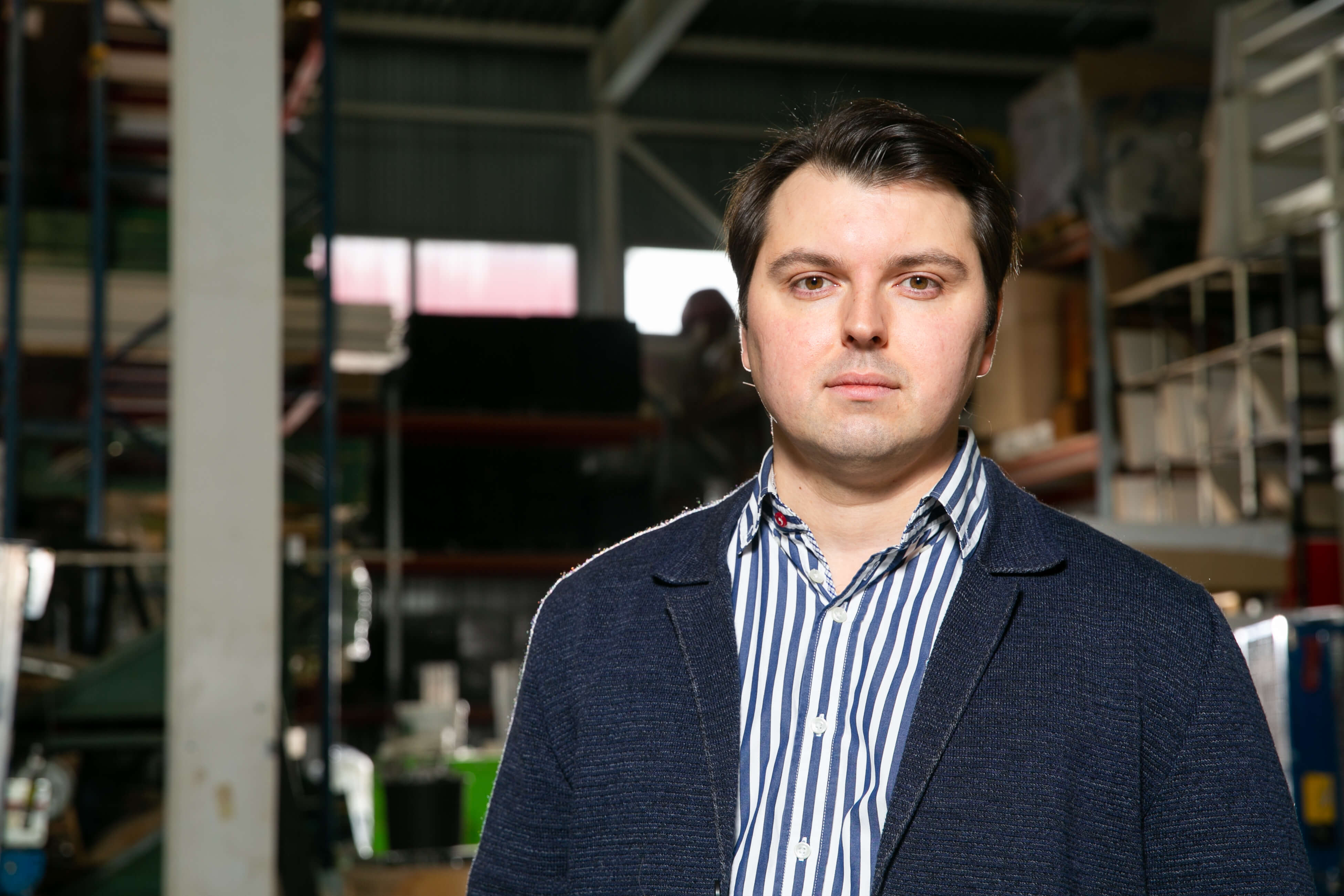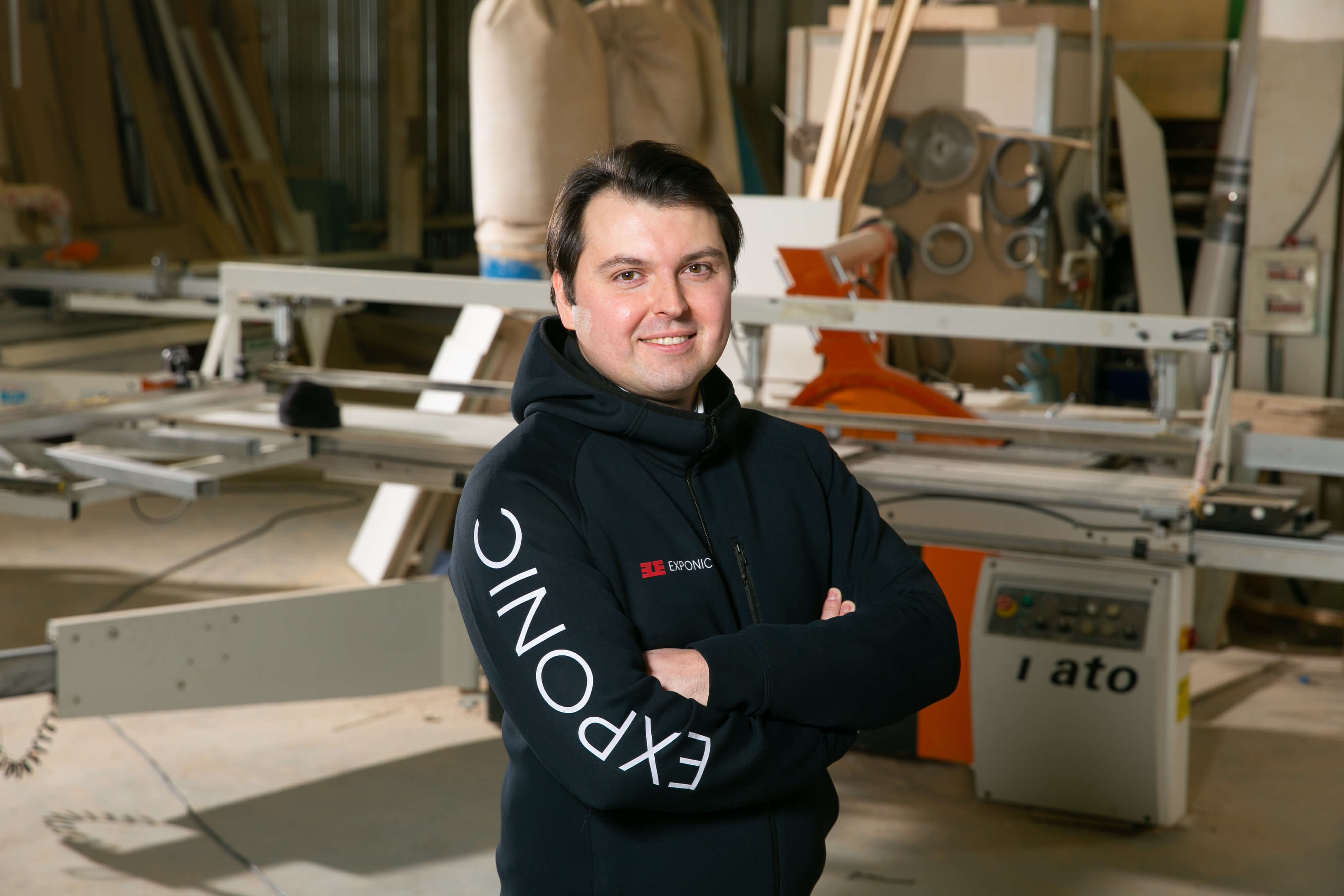"There can never be a substitute for face-to-face contact"

As a venue for expo events, Moscow accounts for 75% of all trade shows in the country – and if it wasn’t for COVID, the expo market profits would have been enjoyed by even greater number of entrepreneurs. This belief is shared by Ivan Nikolsky, a graduate of HSE ICEF and leader of Exponic. In this interview with Success Builder, Ivan tells about the nuances of running a family business, how Russian SMEs struggle through challenges, and how to approach ministers more confidently using networking skills.
Was it difficult to study at ICEF?
At 16, my choice of school was made largely by my parents. They said, “You are set for ICEF. It's an awesome school. You’ll graduate with two degrees.” I wasn’t sure I knew what I was up to. I spent most of my free time playing hockey and hanging out with friends. So, they got me the tutors and they raised my academic performance high enough to be enrolled by ICEF. But, I somehow failed my freshman year and had to repeat it, because ICEF’s programme turned out to be very demanding. Only thirty percent of my class made it to year four, I guess. I decided not to give up. I studied hard and got my degree.
How did your parents feel about your being not too keen on studying financial economics?
They convinced me that I should study economics as a fundamental major – the major that could help me find my way in life by furnishing the knowledge of taxation, management and business at large. If I had it my way, I would’ve surely enrolled in drama school and get into movies. I was a big fan of Jared Leto. Wanted to be like him, but instead I went on to study finance, leading the life that was far from that of a bohemian rock star.
When did you first think to yourself, ‘It’s time to make money’?
As a student I suffered setbacks, trying to get a job in all the wrong places. While my classmates went to teach or work in consulting or banking, I in fact gained very little from my double degree. What did benefit me, however, were the excellent self-learning skills that I got from ICEF. Attending lectures and practicals was not sufficient for passing exams. A hefty portion of learning was to be done outside the formal curriculum.
We would sit in libraries, discuss the course material, do extra reading and study at home to achieve the elusive C grade
I’m talking about us, the ordinary students with no particularly impressive performance in the academic contests or research. My class did have a lot of real smart guys. Some of them chose academia as a career and are teaching at the world’s top universities. But, there was one that ICEF had instilled in all of us – structured thinking. With structured thinking, you are a better decision-maker, and it’s very helpful in life at large because it allows to see meanings, not to mention sources of knowledge.

By teaching us to learn, ICEF fulfills a very important task. When faced with ambiguity, we know where to look for answers. But it’s never easy to actually start using this skill.
My mom spent 19 years of her professional life as HR director at Kommersant – my first employer. Because I was proficient in English and had good communication skills, she asked me to join Kommersant for my summer internship and translate international articles for its editorial team. Then, I teamed up with Roman Rotenberg – we met while playing hockey – and we started a small sports nutrition business.
Did you ever think of a career in sport?
I started playing at the age of 10 or 11, which is a way too late to become a professional player. I trained with Sasha Ovechkin in Dynamo till I turned 16, when it was time to choose between hockey and normal schooling without five PE classes out of six a day.
I used to play a lot on amateur leagues until three years ago I was diagnosed with sequestrated disc herniation. I can no longer exercise the way I did, and now that I am a father to a girl I feel I should be giving her all my time.
How was your experience at RANEPA? After ICEF.
Effortless, with briskly won As. It couldn’t be other way round after ICEF. I enrolled in RANEPA to study the hands-on courses that were missing in ICEF’s programme, namely, business management and administration – exactly what RANEPA offered as its core field of study. And its teachers were practicing businessmen. Our international business educator, for example, was serving as Exports Director at Wimm Bill Dann.

My goal was to receive the education as much business-oriented as possible, with quality learning outcomes to prepare me for job in the commercial sector. Although, professionally I made a better progress in the non-commercial projects and as journalist. But at that time, I was far from the idea of joining my father’s business which he had for 30 years.
Why? Wasn’t it the obvious thing to do?
The business he engaged in was never easy. He almost had to wind it up in 2020, when exhibition grounds started to be converted into hospitals. I thought about getting into it when I was a student, but it only led to more misunderstanding. The father-son relationship always came to the fore, giving my streamlining proposals no chance. I couldn’t take my role seriously because it all came down to my father being the leader. Besides, it wasn’t a large business, while my ambition was nothing short of move heaven and earth.
How would you explain the family business phenomenon?
When it comes to real economy and the economy we learn at school, one thing is sure: they are two different things.
The fact that small businesses continue to exist in Russia is a phenomenon in itself. They survive by reasons that are inexplicable and hard to anticipate
The processes within SMEs have nothing to do with business administration, as all they do is struggle to survive. They simply don’t have the time for optimization. Growing a small business in Russia is extremely difficult. And because the government policy towards SMEs is hardly demonstrative of genuine support, starting a small business here is a daring undertaking and pursuit of survival. My father developed a tumor after he found himself in debt at the end of his career.
What was it like to be a journalist?
RIA Novosti is one of the most cherished pages in my career history, and a genuinely exciting one. I got there thanks to my experience at Kommersant and my connections – the ex-colleagues who were in need of the producers for RIA Novosti’s press center. My duties involved monitoring the news and convening roundtables and related expert venues when we had a hot debated issue. It required me to be creative enough to get plans work and networking opportunities happen. I even managed to get to our press center a minister. That press conference gathered an amazing number of journalists. Everything was going fine until I found myself slowly going stale because I never got to cover anything beyond economics and sports. It was the dead end cycle of burnout. I started looking for something else, and my connections led me to government agencies.
How was it there for a creative thinker?
I matured a lot at RIA Novosti. Realized where I wanted to be. And since I communicated mostly with press services, passing over to the other side of the barricades looked a logical move on my way up. The Ministry for the Development of the Russian Far East was being created at that time. Just as a reminder: the area of the Russian Far East is the size of Europe and has only 6 million people – there’s a lot of room for development there. Once at the Economic Forum in St. Petersburg, I said to Minister Galushka, while we were shaking hands, “I would love to be on your team.” I made the roadmap for the Ministry’s press service and got hired. But the job proved something else again.
Ivan Nikolsky earned his bachelor’s from ICEF in 2008. In 2010, he completed master's studies (Business Administration) at RANEPA and started a graduate programme at Moscow State University, which he later chose to leave. Ivan started his professional life as a translator and journalist at Kommersant Publishing House. He then moved to RIA Novosti where he was in charge of the press center multimedia production.
From 2014 to 2015, Ivan served as press office chief at the RF Ministry for the Development of the Far East, and then as PR director at non-profit foundation Sistema. In 2017, he assumed the duties of communications director at Rusfond and joined, one year later, the Internet Initiatives Development Fund and the Public Projects Support Fund where he dealt with non-profit startups. In 2019, Ivan took over the family business, Exponic, established by his father in 1991. Over the first six months under Ivan’s leadership, Exponic’s turnover increased by 30%.
At the press service, I did everything but the press service. It’s no secret that government agencies, and especially ministries, are overburdened with red tape. Getting a bunch of paper clips required writing the internal request, having it agreed with several officials – and I was the head of the department – and placed in the electronic filing system to be officially replied, thirty days later, they didn’t have the paper clips. They surely did – in the office next to mine. How fast can the development of the Far East go when getting a bunch of paper clips is a matter of weeks? Considering the fast and unfailing manner in which I used to get things done at ICEF, this poor organizational ability simply defied my imagination. But, my job was not without advantages: I went on trips across the Russian Far East and could treat myself to caviar.
When did you realize you should stick with something more creative?
Social skills and creative passions are in my genes, from dad and mom. I feel like unfolding this innate creativity, but I can only do so when dealing with out-of-the-box tasks my life poses me to, not by practicing arts. Economics education was trending when I was 16. Following a drama education sounded like sheer madness, waste of life. It’s funny and phenomenal how ICEF, RANEPA, journalism, and the Russian Far East have become parts of my non-artistic biography. But I think I’ve played my parts well.
But you took your time telling your dad, “I want to work with you.” What made you eventually decide to join the family business?
There was a time when I, after working at Rusfond, started to be seen by HR managers as overqualified. Once, I and my friend got to talking about my dad’s company, Exponic. I explained the state of things, and he suddenly started to convince me that Exponic had a lot of potential to thrive. It did grow, true. But it had one problem: its high-quality product was disadvantaged by poor marketing and PR strategies. Simply because my father, who was an architect by training, didn’t know how to win customers.

I remember going to Yekaterinburg for Innoprom, where Exponic was setting up trade stands, and learning a week later that my father had cancer. I obviously felt it was my duty to take over and continue what his had put his life in. I committed to channeling my every effort to this company. In six months’ time, Exponic’s market share increased 30%, although I was completely new to expo segment. I kept a cool head and went on working. I was reshaping Exponic’s brand identity, and I had dad and the staff to back me up. When dad passed away, I had to take the reign of absolutely everything. I started to learn technicalities such as cover materials and how panel saw differed from CNC milling machine. And to top it all off, the pandemic began.
What is the core business of your company?
We design and build exhibition stands and museum installations, servicing the venues based in Moscow – ExpoCentre, Crocus, VDNKh, among others – as well as other Russian cities. We currently operate solely domestically, due to COVID restrictions. And we also do expo consulting. Many companies appear to be unaware of what the demonstration process at a trade fair is about. Interestingly, the lifecycle of a trade show is very much like that of a startup – from lending to search for buyers to scaling. Experienced exhibitors tend to order stands costing millions of rubles. The pursue carefully thought-out presentation policies because they know they will pay off in the end.
Yet, there are expo projects that are born from PR and GR strategies and therefore do not have profit as their primary target, the examples being the International Economic Forum in St. Petersburg and Transport of Russia in Gostiny Dvor. My experience suggests – and I try to get this message across to clients – that participation in such trade shows is always a wise move in terms of future profits.
How would you define the state of the Russian expo market?
Its turnover is estimated at approximately USD 1.5 billion. Russian trade shows are visited by more than 7 million people and share a total space of 3 million square meters, of which 75% is concentrated in Moscow.
If it wasn’t COVID, we would have seen an even bigger growth. Fairs have existed for centuries and in many different forms. They are a phenomenon that drives the exhibition business. Despite the trend towards digitalizing what is utterly undigitalizable, I still believe there can never be a substitute for face-to-face contact – just like there will always be exhibits that need to be touched in order to be experienced. When we build a project, it’s always from scratch and it’s always one-off. In this sense, my job involves a lot of creativity as a niche occupation. And in the end, when you see the stand you built set up at a large exhibition, you understand it was worth it.
How did you handle the COVID-19 setback? In what way did the restrictions transform your business?
One thing is obvious: if morbidity peaks and viral strains continue to affect us, the expo segment is doomed. But I believe that life will return to normal. I told my father and myself that Exponic was yet to unfold the potential it had from the beginning.
Of the companies set up in the early ’90s, very few are still in business. Even Gazprom is younger than Exponic. We have a lot of room for development
We do our best to support and promote our business. My father started it from zero. He sold his apartment to raise the start-up capital. Suffered major setbacks, but never gave it up. His employees – those with 20-year service record – would help him out financially at the time of crisis. Their commitment and trust make Exponic a family business even without me. I can’t think of any international company with as highly loyal staff as ours.